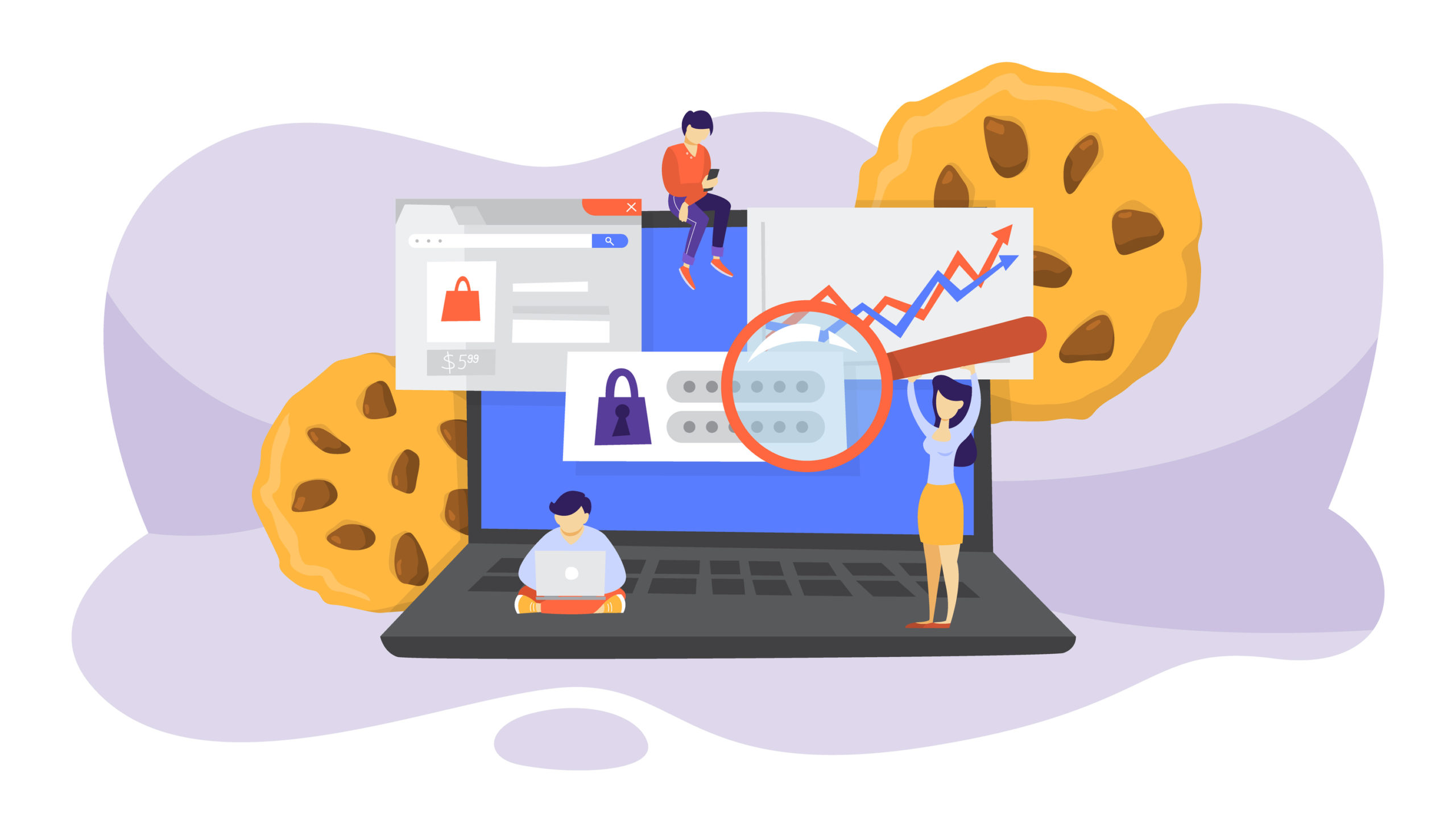Why Am I Asked About Accepting Cookies on Websites? Should I Accept? What Am I Accepting?

It seems that just about every website you visit has some type of notification asking you to accept cookies. The name “Cookies” sounds friendly and innocent, but these tracking files can be anything but.
Cookies are text files that are used by websites to track certain activities on that website and others. They have both positive and negative purposes and it’s important to understand what you’re agreeing to when you click to “accept all cookies,” otherwise your online privacy could be at risk.
How Cookies Work
Cookies, also known as HTTP cookies, are created when you connect to the web server of a site. Some sites will store cookies without your permission, others will ask. (We’ll get into why most need to ask shortly.)
The cookie is stored in your web browser, and it identifies you with a unique ID to the site the planted the cookie. Your ID stores “session” data, which are the activities you take on a website during that connection session.
The types of information that cookies store will differ according to how a website developer sets them up. Here are a few examples of data a site can save in a cookie during your session:
- What product pages you looked at on a website.
- Any products that you added to a shopping cart.
- How long you are looking at a specific page
- Where else you travel online
Positive Use of a Cookie
Positive use of a cookie would be to save preferences you’ve put in place on a site, like a “wish list” on a shopping website like Amazon.
Most people have experienced what happens when you click “clear all cookies” in your website browser. It’s like websites you visit don’t even know you anymore! That’s because you’ve cleared the tracking cookie that has all your personal session data stored and that the site reads to know who you are.
Negative Use of a Cookie
Negative use of a cookie would be ads that drop 3rd party cookies that follow you around online and track your every moment so more ads can be served to you.
“Retargeting” is a term that is now common in online advertising. These cookies aren’t contained in a single website. Instead, they follow your online journey and spy on everything you do. They’re the reason that if you visit a site about running shoes, all of a sudden you’ll start seeing running shoe ads when you’re on Facebook or Instagram.
Why Do I Get All These Requests to Accept Cookies?
Most websites use cookies of some kind to track your activity. Many did this for years without really telling their website visitors.
But as online privacy regulations began to be put in place, especially the European Union’s GDPR (General Data Protection Regulation), companies were forced to provide more information to website users about the personally identifiable data they were tracking.
If a website owner doesn’t alert users that they are using cookies and collecting that user’s session date, their company can be subject to fines and other penalties.
Despite the threat of non-compliance, it’s estimated that 53% of these notices are hidden near the bottom of the website, and 93% of those that do ask the user to accept with a prompt, give them no other option but to accept the cookies.
When thinking about your own website and tech policies, you should also have one for how users are notified should you use cookies on your site.
What Should You Do?
Cookies are a part of life on the internet, but it’s important to know that you don’t have to accept them if you don’t want to.
What happens if you don’t accept cookies? The website owner could make it impossible for you to use their site. But in most cases, you just would not have as personalized an experience. For example, if you saved items to your shopping cart, they would not be there if you left the site and then came back.
Some sites will allow you to save limited cookies, which they might term “required cookies only.” In this case, you can opt for a lower level of tracking that is most likely associated with saving important site preferences.
It’s best to keep cookies to a minimum and to clear out cookies regularly in your browser settings for sites that you don’t frequently visit or where you don’t care about having a personalized experience or having preferences saved.
Need Help With Online Security Safeguards?
Online privacy can be tricky because you really have to be your own advocate on most websites. C Solutions can help your Orlando area business optimize your network for security and keep your staff up to date on security awareness.
Schedule a free consultation today! Call 407-536-8381 or reach us online.
